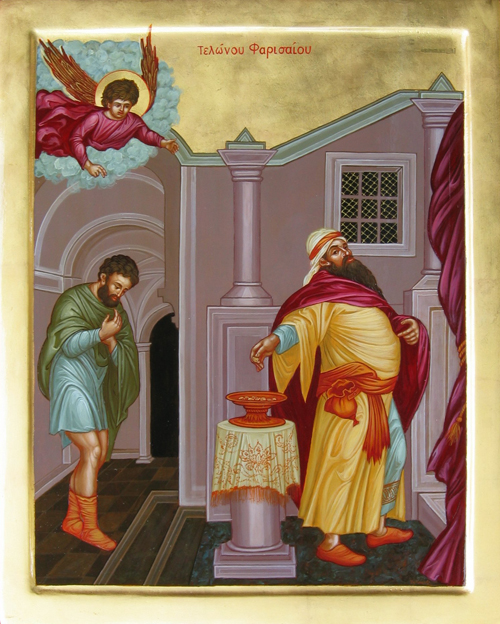
We must speak the truth about what sin is, but when it comes to judging the state of another person's soul, that is something about which the Fathers have a lot to say:
(Except when otherwise noted, all these quotes come from the Evergetinos, Book III, Hypothesis II, pp. 9-32.:
“…it sometimes happens that we know about the sin of one who has committed fornication or fallen into some other transgression, since it was done openly, but are unaware of the repentance which he has performed in secret, such that he whom we condemn as a fornicator has been purified by God and is now living prudently.” –St. John the Merciful
“Many people who sin frequently in the sight of others, and then confess in secret to God, have been forgiven by him and, being well-pleasing to Him, have received the Holy Spirit. Those whom we reckon to be sinners (of whose repentance we are unaware) are justified in the sight of God. This is because we see the sins which they have committed, yet we know nothing of the good deed which thy have performed in secret. Hence, we should not condemn anyone, even if we perceive him sinning with our very eyes. For as soon as the sinner has taken ten steps away from us, we are not in a position to know what he has done in secret or what God has done for him. Toward the evening of Great Thursday, Judas the betrayer was with Christ and the Disciples, whereas the thief was in the company of malefactors and murderers. But when Friday came, Judas departed for the outer darkness, because he had betrayed the Lord, whereas the thief, because he repented on the Cross, went to dwell in Paradise with Christ. In view of such sudden changes, it is good not to judge a man until Christ comes, for He knows the mind of men and reveals the secrets of our hearts.” –St. Anastasius the Sinaite.
“We and our brothers are dual images: whenever a man is attentive to himself and reproaches himself he finds his brother to be virtuous; but when he thinks that he himself is good, he finds his brother to be evil in his sight.” –St. Poimen
“On seeing someone sinning, a holy man wept bitterly and said: “He has fallen today, and I will surely fall tomorrow; he will surely repent, but as for myself, I am not so sure.”
“Busy yourself with your own faults, and not with other people’s and the workshop of your mind will not be despoiled.” – St. Mark the Ascetic.
St. Anastasius of Sinai recounts:
“A certain monk wasted his whole life in heedlessness and idleness. Then he fell gravely ill and his end drew near, but he showed no fear of death. Instead, he was merry, and prepared for his departure from the body joyfully praising and thanking God. Gathering at his bedside, the abbot and the other monks said to him, “Brother, we are witness to your inattentive life. How is it that you are so calm and happy now, when the dread hour is at hand? May our Lord Jesus Christ strengthen you, so that you can rise and explain this mystery, and we may glorify God’s greatness.” “Lifting himself up a little, the monk replied, “Reverend fathers, what you say is true. I have thoughtlessly squandered the days of my life, and a moment ago God’s angels appeared to me and read a list of all my evil deeds. “Do you admit to this?” they asked. “Everything is true,” I conceded, “but you must take into account that since I renounced the world and was tonsured, I have judged no one and held no grudges. Christ said, Judge not, that ye be not judged, and If you forgive men their trespasses, your heavenly Father will also forgive you. I pray that these passages be applied in my case.” No sooner had I spoken these words than the angels tore to pieces the scroll on which my transgressions were recorded. Now you know why I am please be leaving this temporal realm.” With this, the brother peacefully surrendered his soul into the Lord’s hands” (The Great Collection of the Lives of the Saints, by St. Dimitri of Rostov, March, P. 435f).